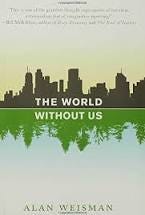Every now and then it happens. The light splashes a leaf, turning what appeared to be green into half a rainbow. Or, a sudden breeze stirs a glass-like pond, making you shiver.
These moments freeze like ice. You can’t really move your eyes away even if you try.
Painters live for moments like these; all artists do.
Often when in Europe on business trips, I would visit museums, which at that time were unlike their American counterparts; you could walk right up to a painting as if to touch it. On those visits, I came to admire the use of color and light; for some reason the black in Rembrandt paintings always struck me not as the absence of light but as the essence of beauty.
Of course it wasn’t always black, it may have been green. Splashed by the light it could turn into half a rainbow if you looked long enough.
This memory came back to me recently when I discovered the 2003 film version of the historical novel “Girl With a Pearl Earring.” The book and the film re-imagine the character who might have inspired what was arguably the Dutch baroque painter Johannes Vermeer’s greatest painting.
As per the book, the film posits that Vermeer's model for the painting was his maid, though there is no evidence this was the case. The original actors cast for the film were Ralph Fiennes and Kate Hudson, but when they both left the project before production started (he for "Maid in Manhattan"), 17-year-old Scarlett Johansson and Colin Firth stepped into the roles.
Both Firth and Johansson are simply terrific. The unresolved sexual tension between these two yields the story (and in the fictional version the painting) and Johansson does resemble the girl in the actual piece to a remarkable degree. The film also contains scenes that present the Dutch environment of the 1600's as a replication of Vermeer's painting style -- a luminous realism celebrating how light animates our surroundings if we just care to look.
The girl's expression in the painting is the look of knowing she is desired and daring to look back. You don't have to be an artist to appreciate that.
(This essay originally appeared in 2021.)
HEADLINES:
Israeli military fires two senior officers as report finds strike on aid workers was in ‘serious violation of commands’ (CNN)
UN human rights body calls for halt to weapons shipments to Israel (NPR)
Israel to Add Gaza Aid Routes as Biden Hinges Support on Civilian Protection (NYT)
Israel braces for Tehran’s response after deadly Damascus strike (WP)
This week's strike on Iran's embassy in Damascus shows Israel's growing reach in the Middle East, but six months into the Gaza war it is facing deepening isolation. (Reuters)
Biden urges Egypt, Qatar leaders to press Hamas to come to agreement for Israeli hostages in Gaza (AP)
US awaits Netanyahu’s response after Biden’s ultimatum (CNN)
Netanyahu Faces Pressure at Home and Abroad, From Foes and Friends (NYT)
Tensions flare between special counsel Jack Smith and Judge Aileen Cannon (Politico)
Job growth zoomed in March as payrolls jumped by 303,000 and unemployment dropped to 3.8% (CNBC)
US jobs boom raises doubts about rate cuts (BBC)
Why the death of the honeybee was greatly exaggerated (Vox)
Earthquake near New York City rattles much of the Northeast (CBS)
Meta to broaden labeling of AI-made content (Axios)
AI will shrink workforces within five years, say company execs (CNN)
Goldendoodle Not Good With People Who Earn Less Than 6 Figures (The Onion)



